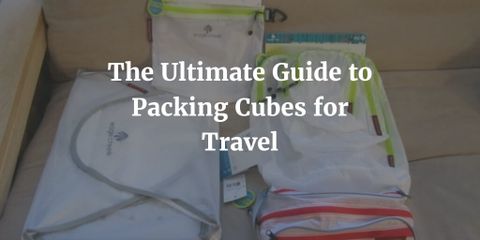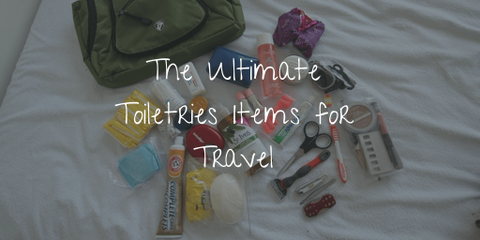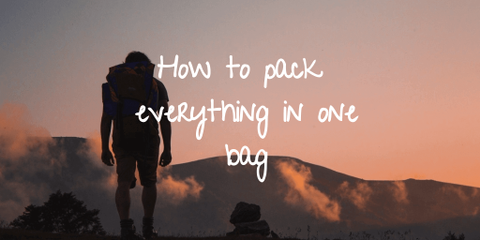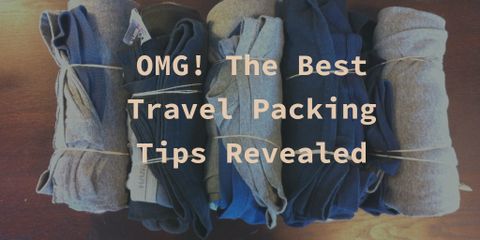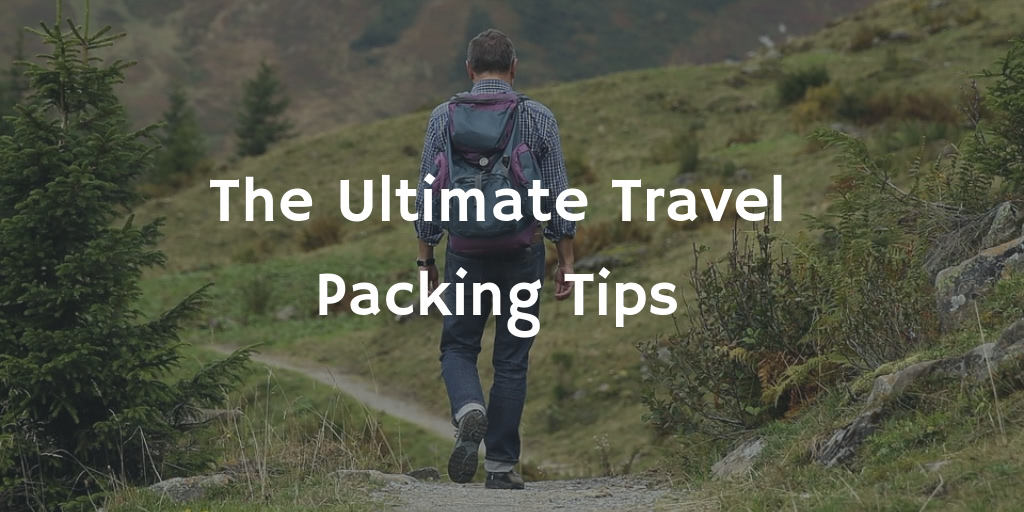
The Ultimate List of Travel Packing Tips
The Ultimate Travel Packing Tips
These are the packing tips we have picked up after years of traveling. How you can stay organized, take care of your hygiene and still have fun.
Travel Packing Tips for clothes
- Get Organized: Use packing cubes to separate dirty clothes from clean ones.
- Be Fresh: Use scented dryer sheet or incense bag in the clothes compartment for making the clothes smell good and fresh.
- Tidy: Packing folders or cubes keep clothing looking pressed while traveling.
- Compression Sacks or Packing Cubes: Learn how to roll clothes and use a compression sack. Rolled clothes = saved space. Ranger fold/roll is one of the best methods. One other modified version you can try involves rolling undershirt/boxers/socks as one unit so you can separate clothing out by day.
- Non-Iron: Get non-iron shirts. Wrinkled clothes make you look dumb.
- Socks: Don’t short yourself on socks, though. Socks are the greatest thing you can take on your travel. Bring extra socks cause t-shirts can be re-worn but smelly socks suck.
- Ziploc Bags: the best thing you can carry is a few Ziploc bags for dirty laundry, especially underwear and socks.
- Travel Towel: Get a travelers towel made of Microfiber or similar.
- Go Synthetic: Go for synthetic materials and merino wool over cotton. They stay cleaner longer and deal with moisture (rain, sweat, etc.) much better.
- Coordinated Clothes: You should maximize the number of outfits from the least amount of clothes. You can do this by going for one color palette, or by making all your pants neutral and your shirts colorful.
- Wear what the locals wear.
- Separate your things in different bags or something, so you don’t have to go on a treasure hunt every time you need to find your toothbrush. For toiletries, use toiletry bag or just plastic bags - otherwise, you have to empty your bag to find anything.
Miscellaneous Travel Tips
- Use Money belt: Just put your stuff your rail pass, passport, extra money. Our favorite travel wallet.
- Less Bulky: Look at the stuff that you are considering packing that is bulky and check if there’s a less cumbersome alternative you can bring instead.
- When in doubt, leave it home. You can get anything you need to get by as you go.
- Small items that can make travels easier: inflatable neck pillow, eyeshades, earplugs, slip on or flip-flops), a bathing suit, nail clippers.
- Playing cards: Even if you don’t usually play cards, cards are perfect for killing time or socializing.
- Backpack locks. A lot of hostels will not have lockers, and even if they do there are many times and places where having locks on your bag is just that little bit of the other deterrent.
- Earplugs: Earplugs will also keep you sane at night with loud hostel mates or check out thisnoise-canceling headphone.
- Go Local: Locally purchase toiletries on arrival to save on liquid limits and weight/space in your bag. TSA Liquid Rule
- Big Ziploc bags work great. And you can smash the air out of them to compact them.
- Your MP3 player or phone will keep you sane on those fun bus trips with a screaming child.
- Psychological comforts: Keep favorite books, journal, pictures of loved ones, favorite travel snacks handy. Sure, it’s extra weight and space, but you will appreciate having these things when you’re exhausted or lonely, especially when traveling abroad. Making friends when traveling alone.
- Thoroughly research the areas through which you’ll be traveling, it will help you know what to expect and will cut down on your travel expenses.
- Be safe and smart - don’t find yourself alone at dark. Have a visual check at least twice a day on your valuables: money, ID, passport, computer. Don’t let these things out of arm’s reach, ever. More travel safety tips.
- If staying for a long-term, you could parcel post overseas for cheap. That will free up a ton of room.
- Most hostels have a book exchange, and a decent number of smaller bookshops have English books tucked away in a corner somewhere, don’t be afraid to ask because they’re cheap and easily changed at your next hostel.
- Buy Travel Insurance - If you can’t afford insurance, you can’t afford to travel.
- Register your trip with the US State Department - they’ll send email updates if shit is going down where you are and can help you get home if something goes wrong. Find out where the embassies are, keep contact information for them in both your email account and in written form.
- Bargain for things, anything and everything - hotel rooms, souvenirs. Hail two cabs at once and bid them against each other.
- Buy strap mounting clips for securing your DSLR to backpack shoulder straps. The quick release means you can hike hands-free, but always be ready for any action you stumble across on your adventure. Traveler’s favorite lightweight camera.
What not to take on your next trip
- Phrasebook: Phrasebooks are too heavy, and hardly ever used. Memorize simple words and use Google Translate for the rest.
- Energy bars: Except when on wilderness or adventure trips, there’s food everywhere, and it is always more appetizing than an energy bar.
- Easily Available: Don’t pack things you can easily buy at your destination. Toiletries, lightweight shoes, and quick-drying shirts take up a lot of space, and you can always find something comfortable on your destination.
- Sunglasses: Don’t take sunglasses you aren’t prepared to lose or break.
- Ask the question “have I used or worn this in the last week?” If the answer is no, it may be a good thing to leave it behind.
- Laptop: It is too bulky and will make you a target for theft. A good smartphone is all you need apart from the computers in the hostels and internet cafes.
The Ultimate Outdoor Travel Tips
- Do not go without a water filter bottleand hydration bladder.
- Don’t wear cotton clothing particularly underwear. Go for fabrics like Modal, Merino that will wick away sweat instead of absorbing it.
- Cliff bars and other high calorie/protein bars are good to eat throughout the day.
- You can add a jumper underneath the down jacket to add further warmth.
- A good gore tex jacket is a great windbreaker and rain-proof too.
- Pack clothes that dry quickly and can be used in layers in case you hit a cold spot.
- Use three layer clothing: thermals, insulation (like fleece), and something that is water and windproof. If it’s freezing, put a coat over that.
- Merino is perfect for base layers.
- Quick-dry shirts are best for travel.
- A good quality down jacket (they pack small, and the warmth to weight ratio is outstanding) is must on cold regions.
Written By Kate Mark

Kate is a mid-lifer who quit a growing corporate career to reawaken her passions and her lifelong dream of traveling the world.
